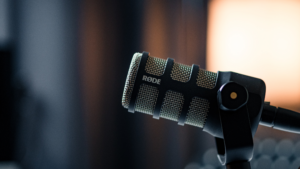We all want to give our children a good education. But as the total cost of private schooling approaches the half million dollar mark1, and Australian parents expect to be paying off their children’s university fees for almost a decade2, the pressure on family finances is mounting.
So when should you start putting money aside, and where’s the best place to put it?
The true cost of education
Putting a child through private school has never been more expensive. A 2013 survey by the Australian Scholarships Group showed that a private school education – including the costs of uniforms, extracurricular activities and transport – costs parents almost half a million dollars, compared to $60,000 in the public system. It’s most expensive to private school your child in Sydney, with a preschool to Year 12 education costing $543,334.
The financial burden on parents doesn’t end there. Many Australian parents are forking out for all or part of their children’s university education as well – entering into debts they’ll be paying off for an average of 9.3 years3. With uni costs expected to rise 50 per cent by 20234, that number could quickly inflate.
Invest wisely and early
You may not know where your child will go to school when they are born, but if you start putting money aside regularly from an early age you’ll have more options later.
A simple option is to put some money into a high-interest savings account every month – but there are other methods available that could yield higher returns.
- Use your mortgage offset account. You’ll reduce the total amount of interest you pay on your home loan, and the funds are easily accessible when the school bills arrive. Check your bank doesn’t charge any redraw fees and bear in mind you’re not actually earning interest with this option.
- Separate these savings from your everyday account with a managed fund held in the name of the lower-earning partner. You can mix and match investments and choose how you use the money. Market fluctuations can affect your returns, and there are tax consequences and associated fees.
- For higher income earners with ten years or more to invest, investment bonds can be a good option. The tax on earnings is limited to 30 per cent, and you can start with a riskier, higher return option and then switch to a safer one closer to the time when you need the money.
- Education funds are designed to help you save for your children’s education, sometimes with tax breaks. You’ll need to commit to making regular contributions however these involve access criteria and have exit consequences.
Often school fees come when the finances are most stretched, with mortgage repayments and all the other pressures of a growing family. So even if school seems a long way off, starting to save early can make a big difference later on.
Make sure you consider your other financial obligations – such as paying off your mortgage or lifestyle debt – before putting your money into any of these saving options, and speak to your adviser to work out the best method for you.
References:
1.http://www.goodschools.com.au/news/survey‐reveals‐the‐cost‐of‐an‐australian‐school‐education
2.www.hsbc.com/~/media/hsbc‐com/newsroomassets/2015/pdf/voe‐2‐global‐report‐final‐lr
3.HSBC Value of Education Global Report
4.http://www.news.com.au/finance/small‐business/start‐saving‐now‐if‐you‐want‐your‐kids‐at‐uni‐parents‐warned/story‐fn9evb64‐1226585302261
Disclaimer: * The information contained in this site is general and is not intended to serve as advice as your personal circumstances have not been considered. DPM Financial Services Group recommends you obtain personal advice concerning specific matters before making a decision.





